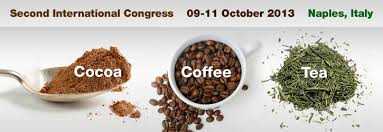Culetu A, Högger F, Héritier J & Andlauer W Institute of Life Technologies, University of Applied Sciences Valais, Route du Rawyl 47, CH-1950 Sion, Switzerland
More consumers around world appreciate the positive properties of decaffeinated tea. Tea decaffeination process using methylene chloride generates the lowest loss of original tea compounds and permits the possibility to recover caffeine.
During the process of decaffeination, a very fine tea dust as byproduct is obtained. From chemical point of view, this powder is comparable with the decaffeinated tea; polyphenolic profile and theanine content being the same. Thus, the valorization of tea dust powder represents an important aspect, considering that, currently it’s mainly used for biogas production.
In this study, bioactive compounds from tea dust are extracted with water; then, the extract is separated on a column resin. Thus, two isolated fractions from tea dust extract are obtained: a polar fraction rich in theanine, which contains amino acids, sugars and minerals and a polyphenol fraction. These fractions can be used as ingredients for functional food production, for example: beverages, milk and confectionery products.
Plenty of beneficial effects of theanine are described: like relaxation effects, improvement in learning ability, prevention of cancer and vascular diseases, improvement of immune system and decrease of weight
[1]. Also tea polyphenols are well known to present health promotion properties
[2]. Due to the positive effects of these bioactive compounds, the valorization of tea dust is envisioned. The goal of this study is to present a functional food prototype containing exclusively theanine and exclusively polyphenols.
References
[1] Vuong, Q.V. et al. L-theanine: properties, synthesis and isolation from tea. J. Sci. Food Agric. 2011, 91, 1931–1939 [2] Khan, N., Mukhtar, H. Tea polyphenols for health promotion. Life Sciences, 2007, 81, 519–533


















